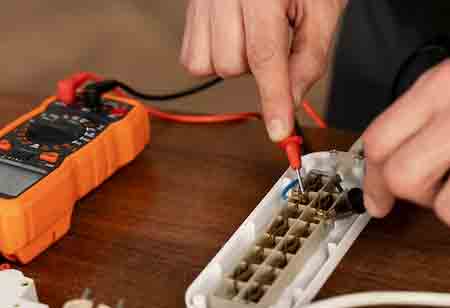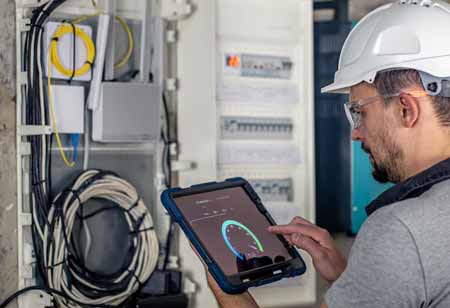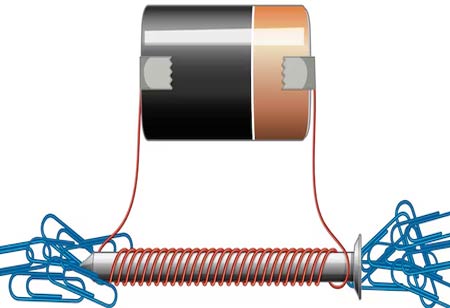Thank you for Subscribing to Electrical Business Review Weekly Brief
I agree We use cookies on this website to enhance your user experience. By clicking any link on this page you are giving your consent for us to set cookies. More info
Exploring the Role of Electrical Manufacturer Representatives
Being an electrical manufacturer representative means driving innovation, customer satisfaction, and manufacturer growth while adapting and building strong relationships.

By
Electrical Business Review | Thursday, February 06, 2025
Stay ahead of the industry with exclusive feature stories on the top companies, expert insights and the latest news delivered straight to your inbox. Subscribe today.
Being an electrical manufacturer representative means driving innovation, customer satisfaction, and manufacturer growth while adapting and building strong relationships.
Fremont, CA: An electrical manufacturer's representative's job is dynamic and demanding, requiring a special blend of commercial savvy, technical expertise, and people skills. These experts operate as liaisons between producers and their clients, guaranteeing that goods are successfully introduced to the market while meeting customers' changing demands. However, the job has obstacles that put their flexibility, knowledge, and fortitude to the test in a cutthroat and ever-evolving sector.
Electrical manufacturer representatives face an enormous challenge in keeping track of new products, systems, and standards that enter the market. Therefore, they must continuously learn by attending seminars and communicating closely with manufacturers to furnish the accurate information required in the market. Failure to stay updated might lead to a loss of opportunities and credibility.
Representatives of electrical manufacturers face market competition from multiple companies competing for customer loyalty. Therefore, they must differentiate themselves as companies that will build long-term relationships, show value, and demonstrate good customer service. Representatives must tailor their pitches to each client's needs and problems, requiring a thorough understanding of their operations and goals.
Economic trends and supply chain disruptions increase the complexity of the representative of an electrical manufacturer's work. Economic downturn or geopolitics can affect the availability and pricing of electrical component inputs. Representatives must cope with these uncertainties by properly managing client expectations, effectively negotiating, and finding alternative ways to ensure continued business. Their ability to be transparent in communication while presenting practical solutions during times of crisis often determines if they will retain their customers.
The switch to sustainable and energy-efficient technologies presents opportunities and challenges. As industries become more environmentally conscious, representatives must market eco-friendly products that meet environmental regulations. Although the shift will give them new markets, cost, implementation, and compatibility with the present systems must also be addressed. Change resistance and making clients aware of the long-term benefits of sustainable technologies require convincing and well-informed marketing.
Electrical manufacturer representatives face further challenges related to time management and workloads. Such a position requires traveling extensively, meeting clients frequently, and completing jobs on tight deadlines. This balance of administrative responsibilities, like reports and coordinating with manufacturers, can lead to stress and burnout. Some effective strategies to manage time will be combined with digital organization and communication tools for efficiency and wellness.
Despite these challenges, an electrical manufacturer representative plays a vital role in the modern industrial landscape. By overcoming these obstacles, they allow the smooth passage of innovative products to market, drive customer satisfaction, and contribute to the growth of their manufacturers. Their ability to adapt, innovate, and build strong relationships ensures their relevance in an industry that is both challenging and rewarding.








